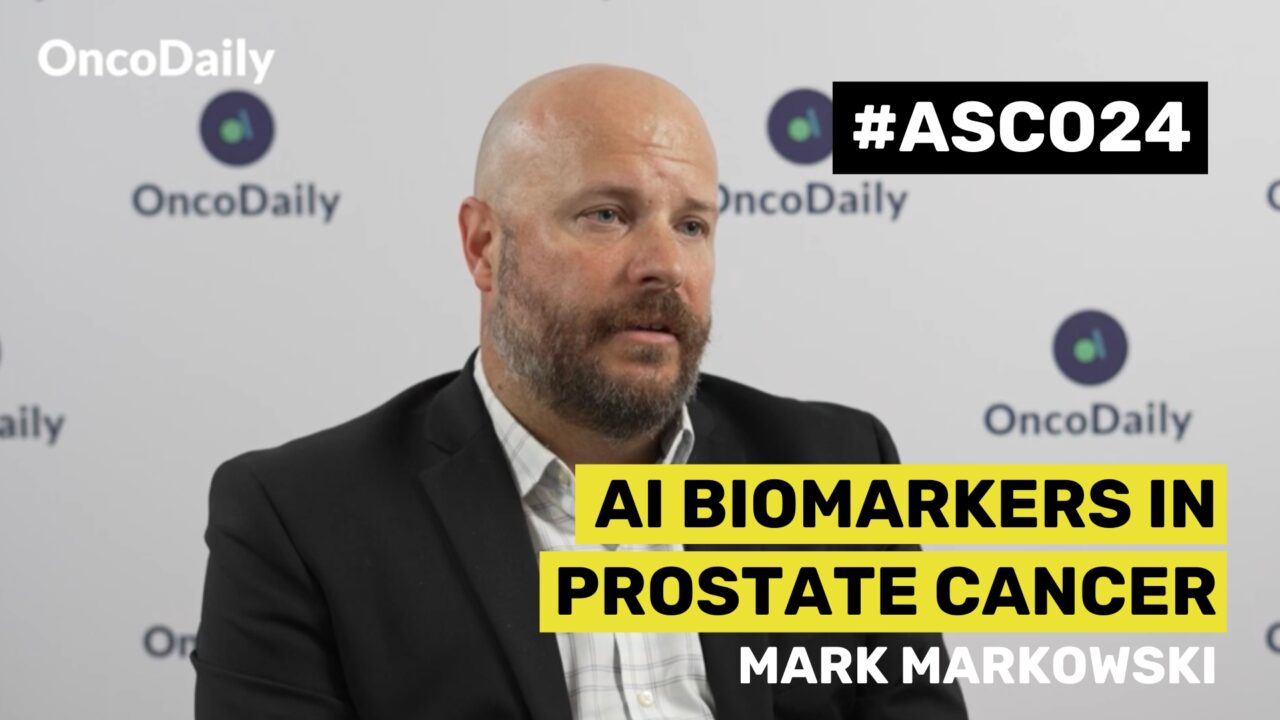
ASCO2024 Updates: Mark Markowski on AI Biomarkers in Prostate Cancer
The American Society of Clinical Oncology (ASCO) Annual Meeting is one of the largest and most prestigious conferences in the field of oncology. This year, the meeting took place from May 31 to June 4 in Chicago, Illinois. The event gathers oncologists, researchers, and healthcare professionals from around the world to discuss the latest advancements in cancer research, treatment, and patient care. Keynote sessions, research presentations, and panel discussions are typically part of the agenda, providing attendees with valuable insights into emerging trends and innovations in oncology.
This year, OncoDaily was at ASCO 2024 for the first time covering the meeting on-site. We had the pleasure of interviewing researchers who summarized the highlights of their work.
In this video, Dr. Mark Markowski, medical oncologist at Johns Hopkins University, shared insights on ‘Prognostic validation of a digital pathology-based multi-modal artificial intelligence (MMAI) biomarker in patients with metastatic hormone-sensitive prostate cancer (mHSPC) from the CHAARTED trial (ECOG-ACRIN EA3805).‘
My name is Mark Markowski, a medical oncologist at Johns Hopkins University in Baltimore. My poster discussion today involved the company Artera AI, and Artera AI developed a multimodal artificial intelligence biomarker for prostate cancer. Initially, they developed this biomarker in localized prostate cancer in patients undergoing radiation therapy with or without hormonal-based therapies, and we’ve taken this AI model and applied it to the charted data.
Now, charted was a randomized phase three study involving about 800 patients with newly diagnosed metastatic prostate cancer. All patients were treated with androgen deprivation therapy, and half of the patients received docetaxel at 75 milligrams per meter squared intravenously every three weeks for up to six cycles. And the data has resulted many years ago, and it’s been matured, showing an overall survival benefit of chemotherapy.
And what we have done is use this Artera AI scoring system, this AI biomarker, to predict for overall survival in the cohort. And that is what our data found. So using this model that was optimized for local prostate cancer, we then applied it to metastatic prostate cancer and found that the model independently predicted overall survival in the entire cohort.
We have not yet showed a predictive benefit of the AI biomarker with respect to treating with chemotherapy. So the Artera AI biomarker is not predictive in terms of response to chemotherapy. So newer iterations of the model will need to relearn patients with metastatic prostate cancer, and hopefully with more data, we’ll be able to use this Artera AI biomarker to predict responses to different systemic therapies such as chemotherapies and novel AR-targeted therapies.
So this is the first iteration of Artera AI in prostate cancer in terms of predicting outcome. And with all artificial intelligence models, the more data it receives, the better the prediction algorithm. And so I’m optimistic in the years to come that with more data, we’ll be able to leverage this AI platform for the treatment of patients with metastatic prostate cancer.
Thank you.
More videos and content from ASCO 2024 on OncoDaily.
-
Challenging the Status Quo in Colorectal Cancer 2024
December 6-8, 2024
-
ESMO 2024 Congress
September 13-17, 2024
-
ASCO Annual Meeting
May 30 - June 4, 2024
-
Yvonne Award 2024
May 31, 2024
-
OncoThon 2024, Online
Feb. 15, 2024
-
Global Summit on War & Cancer 2023, Online
Dec. 14-16, 2023
